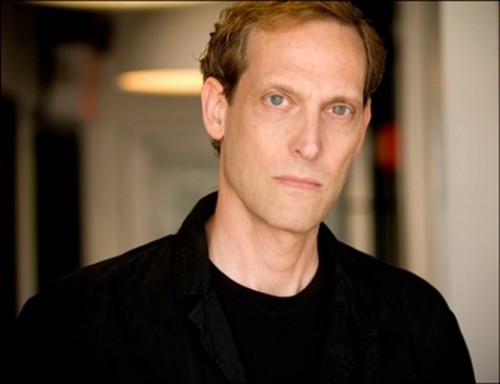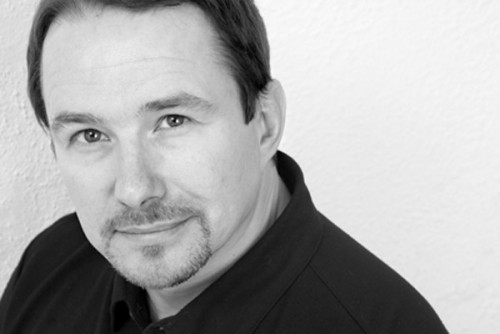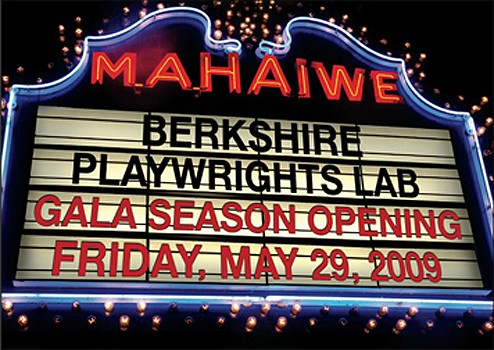Mahaiwe: Berkshire Playwrights Lab Launches Project with New David Mamet Play
Gala Event on May 29 Features Celebrities
By: Larry Murray - May 05, 2009
Having recruited Joan Ackermann, Eric Bogosian, Larry Gelbart, and David Mamet to write plays especially for their group, the Berkshire Theatre Lab is about to explode on to the region's literary and theatrical scene with high energy and imagination. It all begins with a Fundraising Gala on Friday evening, May 29 at Great Barrington's Mahaiwe Performing Arts Center.
The playwrights have all written original short plays to be read that night by an equally illustrious group of actors - including Karen Allen, Elizabeth Franz, Dan Lauria, Wendie Malick, Peter Riegert, Jay Thomas, and others. The proceeds of the benefit will support the Berkshire Playwrights Lab Free Staged Reading Series, which will take place on Wednesdays at 8pm on June 10, July 1, July 15, July 29, August 12, August 26, and September 16.
Curious about this new addition to the Berkshire cultural scene, we were fortunate to be able to correspond via email with two of the founders of this effort, Bob Jaffe and Jim Frangione. Here is what we learned.
Larry Murray: There seem to be far fewer women writing for the stage than men. Why is that? What are you doing to encourage more women to enter this frustrating field?
Bob Jaffe: It has always been that there are fewer women playwrights considered for production. We actively solicit plays from women and, in fact, many of our relationships are with women playwrights. In our season last year, we presented works by Cindy Lou Johnson, Carol Schneider, Ylfa Edelstein, Daria Polatin, and Anna Ziegler.
A large number of scripts that we are reading this year are from women playwrights. We are not in a position to encourage women to enter the field, but we can certainly place as one of our priorities presenting plays written by women.
LM: Where does Joan Ackerman fit in this picture?
Jim Fragione: Joan Ackermann is a friend and a wonderful playwright with a great following in the Berkshires. I asked Joan to write something for our benefit because I really love her work and we wanted to make sure that we included at least one local playwright in our evening.
Her plays generally reflect life as it unfolds in our community. She's chosen to write about small town life because those are the people and the stories she knows and loves. Her plays have been produced all over the country. Joan's theater, Mixed Company, has been an institution in Great Barrington for years. I think my favorite play of Joan's is Stanton's Garage, which is set in Mill River.
LM: Each medium is different and David Mamet seems to be a master of all three. Is the difference between the forms something that playwrights often miss, or is it relatively easy to learn?
Jim Fragone: It seems to me the best writers working today in TV, film and theater, David Mamet included, all make a distinction between the different mediums and understand what is required of each. Here's how I see it—going to the cinema to watch a Hollywood film, has become like going to the circus. When you go to the circus you pony up your money for a ticket and demand to be entertained, or titillated, and you have every right to expect it. And when you are denied that experience, ie when you have been conned by a film without death and destruction, without gratuitous sex and multi-million dollar special effects, you feel cheated. And you have every right to demand your money back.
However, when you buy a ticket to the theater you expect something more. You come to sit in a theater with a different, more egalitarian expectation. You've chosen to bear witness to a story that resonates with your community and your neighbors, to hear news of the common good. And as the successful playwright will recognize that distinction, the successful screenwriter will do the same and supply the goods. Of course, there are exceptions and on occasion a film with subtle themes and writing will percolate up through the suburban Cineplex to find a wider audience.
LM: How do you see the difference?
Bob Jaffe: To me, film is a medium of images and theater is a medium of words. I'm not sure how TV fits into all this but the contemporary narrative of network television and even much of cable seems to me at the same time both more profound and more banal than ever. I say this knowing full well that two of my partners in the Lab, Joe Cacaci and Matt Penn, both successful TV producers, writers and directors, are both grounded in the theater and their work in episodic television on such excellent shows such as The Education of Max Bickford, Damages and House, reflect their theatrical experience.
LM: How elaborate will the staged readings be?
Bob Jaffe: The directors for the BPL all know that we do not like static readings. We allow three full days of rehearsal in order to get beneath the surface of the play and in order to move the actors around the stage to give a sense of movement to the piece. This makes it not only more kinetic but also more interesting for the playwright, the director, the actors and, most importantly, the audience.
Typically, when we have post-show discussions after the readings, the audience reacts to the play as if they have seen a play, not a reading. In fact, many tend to forget that the actors are holding scripts. This is an ongoing testament to the way that we present the plays.
We are vitally interested in hearing the play that the playwright has written, not a best quick guess of what that play is. By allotting the time that we do to rehearsal, we can achieve that objective.
LM: What is your assignment for the season opening?
Bob Jaffe and Jim Fragione: The reason for the Gala that opens our season is twofold. By using the one-act play form, we introduce people to the range of the type of works and presentations that they can expect from us during the season.
Secondly, the Gala allows us to raise some of the money that supports the free play reading series. We made the decision in the early planning stages that we did not want to charge admission to the readings during the regular season. We do have significant expenses, however, and the Gala helps with some (but by no means all) of those expenses.
LM: Staged readings are invaluable to playwrights in order to further develop their work. Is this the main purpose of the BPL or is there more going on behind the scenes?
Bob Jaffe: This is entirely the purpose of the BPL. We want to provide an environment where, away from the eyes of critics and the pressures of investors, our playwrights can bring their script to the next level of its development. There are ongoing revisions and adjustments being made during the entire three days of rehearsal. Hearing the actors say the words, receiving feedback from the director and the Artistic Directors and, finally, gauging the reactions of the audience are invaluable to the playwrights.
We do hope that the BPL, as it evolves, will also be able to take some of the plays that we present as readings and further develop them through workshop presentations and, ultimately, full productions. Certainly, this will not happen with every play that we read, but, if we have done our work properly, we will attach ourselves to some of the scripts.
LM: What sorts of people come to staged readings?
Bob Jaffe: We were astounded last season with the variety of people who came to our readings. Seasoned theater-goers and new theatre audiences, both young and older. People seemed to love the idea of getting on board with a work on the ground floor.


LM: What motivates you to do this?
Bon Jaffe and Jim Fragione: We are all seasoned theatre professionals who have a passion for new, unproduced works. The outlets for developing and presenting those works are limited and we know many, many playwrights that write with no idea of how to get their writings out into the world. We see the BPL as one means to do that – to find the exciting new voices and the seasoned playwrights who are writing exciting new plays.
Our audiences have enthusiastically agreed that our idea is a good one.
About the Berkshire Playwright's Lab
Founded in 2006 by theater professionals Joe Cacaci, Bob Jaffe, Jim Frangione, and Matthew Penn, Berkshire Playwrights Lab is dedicated to encouraging, developing, and presenting new plays. Through readings, workshops, and fully-staged productions, the Lab provides emerging and established writers with a professional and creative environment, while offering audiences the unique and provocative opportunity to share in the dramatic evolution of premiere works. For more information about this new organization, see www.berkshireplaywrightslab.org.
The Playwrights
The Gala Season Opening will feature original material written by Pulitzer Prize-winning playwright David Mamet (Glengary Glen Ross) and Pulitzer Prize finalist Eric Bogosian (Talk Radio). Larry Gelbart is best known for writing the musical, A Funny Thing Happened on the Way to the Forum, the television series, M*A*S*H, and for co-writing the Oscar-nominated screenplay, Tootsie. Playwright Joan Ackermann is the co-founder and artistic director of Mixed Company, a twenty-five-year-old theater in Great Barrington, Mass., and she was a long-time writer and producer for the television series, Arli$$.
The Actors
The evening's actors are equally accomplished as the playwrights. Karen Allen is best known for starring in the films, Raiders of the Lost Ark and National Lampoon's Animal House. Elizabeth Franz won the Tony Award and was nominated for an Emmy for her performance as Linda Loman in Death of a Salesman. Dan Lauria played Jack Arnold (the dad) on the television series, The Wonder Years. Wendie Malick was twice nominated for an Emmy and once for a Golden Globe for playing Nina Van Horn on the sitcom, Just Shoot Me!. Peter Riegert starred in the films, Local Hero and Traffic, and in many David Mamet plays on Broadway. Jay Thomas is a two-time Emmy winner for playing Jerry Gold on television series, Murphy Brown.
Tickets for the Gala May 29
Tickets to the Berkshire Gala Season Opening range from $35 to $100 (with the high-end tickets including a post-performance reception on stage with the playwrights and actors). Tickets may be purchased online at www.mahaiwe.org and by calling the Mahaiwe box office at 413.528.0100.
Further Conversation with the Co-Founders May 10
The cofounders of the Berkshire Playwrights Lab, the Berkshires' newest theater company, will discuss their upcoming season and long-term plans to make new plays part of the regular theatrical menu in the Berkshires, at "The Play's the Thing," part of Berkshire Living's award-winning Rest of the Story series of free public forums, on Sunday, May 10, at 11 a.m., at the Triplex Cinema in Great Barrington.
An outgrowth of "Lab Results," the cover story of the May issue of Berkshire Living, the event, moderated by editor-in-chief Seth Rogovoy, will feature co-artistic directors Jim Frangione, Bob Jaffe, and Matthew Penn in a roundtable discussion and question and answer format, along with managing editor Chris Newbound, who wrote the article on the new ensemble.
About Jim Frangione
Jim Frangione has performed in the NY premiere of several David Mamet plays, including The Old Neighborhood and Oleanna, (as well as the National Tour) and most recently in Romance, at New York's Atlantic Theater Company and subsequently in Los Angeles at the Mark Taper Forum. He also performed in American Buffalo opposite Chris Noth at the Berkshire Theater Festival. Also with Atlantic: The Night Heron, Hobson's Choice, Edmond, Sea of Tranquility, and Hellhound on My Trail.
He directed Romance at the Wellfleet Harbor Actors Theater and recently performed in The Front Page at Long Wharf Theatre and The Pursuit of Happiness at The Merrimack Repertory Theater. Jim was a founder and artistic director of The Stage Company of Boston, where he directed and acted in many plays, by, among others: David Mamet, Athol Fugard, and Harold Pinter. On TV, he has appeared in episodes of Brotherhood, The Unit, Law & Order (original, SVU, & CI), New York Undercover, Another World and All My Children.
His film appearances include Transamerica, Spartan, Heist, State and Main, The Spanish Prisoner, Homicide, Suits, Claire Dolan, Maryam, Frozen Impact, Rubout, Little Kings, and The Last Days of May.
About Bob Jaffe
Bob Jaffe is an actor-director based in New York City and Providence, RI. He has recently been touring a one-man show by writer-director David Eliet, But for the Grace...(a commission from the Rhode Island Food Bank), which played at the 2008 New York International Fringe Festival. This past fall, Bob played Dr. Sweet in Bug at the Providence Black Repertory Company. Other recent performances include the Providence Black Repertory's World Premiere of Black Maria by Kevin Young, Amadeus for the Berkshire Theatre Festival, The Bacchae for the Spingold Theatre Company, and The Theatre of a Two-Headed Calf's Major Barbara at La MaMa E.T.C. Bob originated Â…and then you go on. An Anthology of the Works of Samuel Beckett at various theatres and Off-Broadway.
He played Charlie Gueno in the Showtime original series Brotherhood. Bob directed the world premiere of William S. Yellow Robe Jr.'s Better-n-Indins, the NY premiere of Were You There When the Sugar Beets Got Married? commissioned by the violinist Midori, with text and illustrations by Maurice Sendak and music by Pierre Jalbert, Grammy Award-winner Bill Harley's Get Lost: Rules for Travelers, Rose Weaver's Menopause Mama, and, most recently, Kenny Carnes' Pieces of War, now touring the U.S. He is an affiliated artist at the Providence Black Repertory Company and a board member of Perishable Theatre and the Ensemble Studio Theatre, all of which focus upon the development of new works for the stage.




